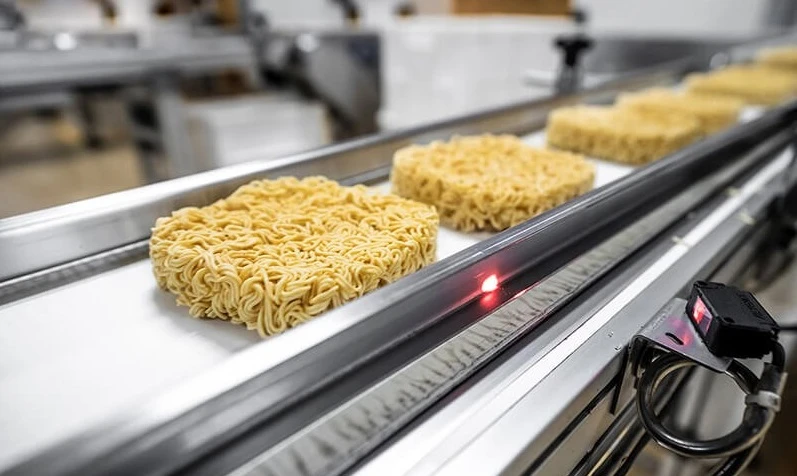
Great news for Vietnam’s agricultural export industry! Vietnamese instant noodles have been given the green light for entry into the European Union (EU) without the need for food safety control.
This development comes as a result of the European Commission’s decision to remove Vietnamese instant noodles from food safety control in the EU, effective from July 2, 2024.
The decision was made public in the Official Gazette, with Regulation No. 2024/1662 signed on June 11, 2024, outlining the measures to strengthen additional inspections and emergency measures for managing the import of agricultural products and food from third countries into the EU.
This move signifies a significant milestone for Vietnam’s instant noodle industry, as it opens up new opportunities for market access and trade expansion.
While this is undoubtedly positive news for Vietnamese instant noodle exporters, it’s important to note that the frequency of inspection at the border gate for Vietnamese instant noodles is still maintained at 20%
. This means that enterprises exporting instant noodles to the EU must continue to ensure that their products meet food safety requirements according to EU regulations.
The removal of Vietnamese instant noodles from food safety control in the EU is a testament to the concerted efforts of the Ministry of Industry and Trade, relevant authorities, and businesses in Vietnam to improve the quality and food safety assurance of instant noodle products exported to the EU.

It reflects Vietnam’s commitment to building national brands for agricultural products and demonstrates the country’s dedication to meeting international standards.
This development holds significant implications for Vietnam’s agricultural export industry, particularly in accessing the EU market, which boasts a population of over 450 million people.
With Vietnamese instant noodles now able to enter the EU without undergoing food safety control, it paves the way for increased trade and economic cooperation between Vietnam and the EU.
In addition to instant noodles, the EU has also adjusted inspection regulations for several other Vietnamese agricultural products. For instance, the frequency of border checks for dragon fruit has been increased from 20% to 30%
. Similarly, chili products have been transferred from Appendix I (50% control) to Appendix II (50% control and accompanied by a Food Safety Certificate, analysis, and testing results of remaining pesticide residues in the product).
Furthermore, okra is subject to a 50% inspection frequency and must be accompanied by a Food Safety Certificate and analysis and testing results of pesticide residues in the product, while durian products maintain a 10% inspection frequency.
These adjustments reflect the EU’s recognition of Vietnam’s food quality and safety standards, which bodes well for Vietnamese agricultural exporters.
The EU’s decision to revise inspection regulations for Vietnamese agricultural products sends a positive signal of trust in Vietnam’s food quality and safety measures.
It underscores the progress made by Vietnamese businesses in enhancing product quality to meet the increasingly stringent requirements of the EU market.
This is a significant achievement that reflects Vietnam’s ongoing efforts to position itself as a reliable source of high-quality agricultural products on the global stage.
Moving forward, it is imperative for Vietnamese businesses to continue their efforts to improve product quality and compliance with international standards.
By maintaining a steadfast commitment to upholding food safety and quality assurance, Vietnamese exporters can further strengthen their presence in the EU market and capitalize on the newfound opportunities presented by these regulatory changes.
In conclusion, the removal of Vietnamese instant noodles from food safety control in the EU marks a significant milestone for Vietnam’s agricultural export industry.
It not only facilitates market access for Vietnamese instant noodles but also reflects broader recognition of Vietnam’s food quality and safety standards by the EU.
This development underscores the importance of ongoing efforts to enhance product quality and compliance with international regulations, paving the way for expanded trade relations between Vietnam and the EU.
With these positive developments, Vietnam is well-positioned to capitalize on its strengths as a producer of high-quality agricultural products and further elevate its standing in the global market.





